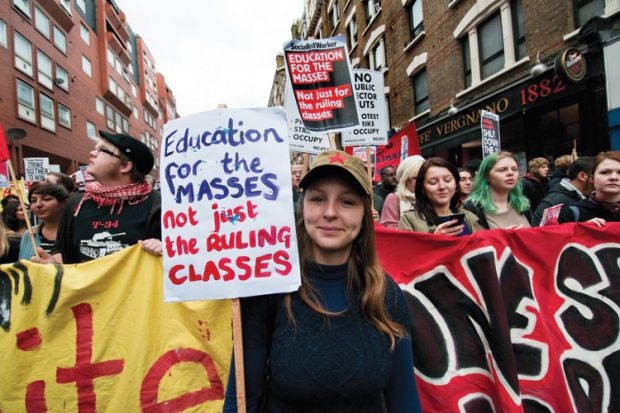A leading sociologist has called on universities to pay far more attention to the role they can and should play in buttressing democracy.
In a lecture given at the University of Brighton, John Holmwood, professor of sociology at the University of Nottingham, said the crucial “contribution of the university to democratic life” had been “almost entirely absent from discussions of the recent reforms” of higher education.
Professor Holmwood – whose lecture on 19 January formed part of the David Watson Memorial Lecture Series, held in honour of the institution’s former vice-chancellor, who died last year – cited the views of the German sociologist Jürgen Habermas that “a properly functioning public sphere” required universities to occupy “a space between the state and the market in which public discussion of pressing social and political issues is facilitated”.
He said that the former universities and science minister Lord Willetts – who himself gave the first lecture in the David Watson series last year – had presented the higher education reforms he presided over as “fully consistent” with the principles set out in the 1963 Robbins Report on expanding access to university education.
But, Professor Holmwood went on, there was in reality a crucial difference. At the time of the Robbins Report and the major changes it ushered in, it was widely believed that economic growth would lead to a decline in income inequality. Given that this was no longer the case, what did it mean for universities to be “explicitly enjoined to economic ends of facilitating economic growth, [when growth] is no longer understood to be inclusive in its consequences”?
While “the growth in ‘privileged’ jobs has not kept up with the number of graduates”, argued Professor Holmwood, “the anxieties created by changing labour market conditions maintain pressure to secure formal qualifications which, if they will not guarantee advantaged employment, at least provide the best opportunity of avoiding disadvantaged employment”.
It was only by attending to “the democratic functions of the university”, concluded Professor Holmwood, that we can hope to “understand not only what the university should be, but what it was (albeit imperfectly) and what it is no longer”.
“Perhaps those of us who are academics can also better understand our complicity. We understand too well the costs in terms of the changes to academic conditions of work, but we need to connect our private troubles to the serious public issues that are at stake.”
后记
Print headline: Democratic role of sector ‘waning’




